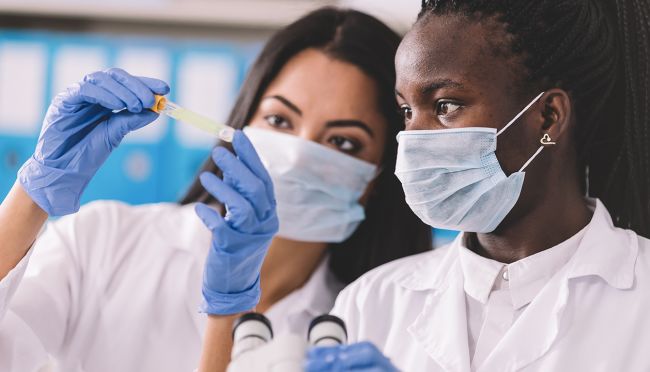Research →
→

- 12 Mar 2024
- Research & Ideas
Publish or Perish: What the Research Says About Productivity in Academia
Universities tend to evaluate professors based on their research output, but does that measure reflect the realities of higher ed? A study of 4,300 professors by Kyle Myers, Karim Lakhani, and colleagues probes the time demands, risk appetite, and compensation of faculty.

- 24 Jan 2024
- Op-Ed
Why Boeing’s Problems with the 737 MAX Began More Than 25 Years Ago
Aggressive cost cutting and rocky leadership changes have eroded the culture at Boeing, a company once admired for its engineering rigor, says Bill George. What will it take to repair the reputational damage wrought by years of crises involving its 737 MAX?

- 19 Sep 2023
- Research & Ideas
What Chandrayaan-3 Says About India's Entrepreneurial Approach to Space
India reached an unexplored part of the moon despite its limited R&D funding compared with NASA and SpaceX. Tarun Khanna discusses the significance of the landing, and the country's advancements in data and digital technology.

- 28 Mar 2023
- Research & Ideas
The FDA’s Speedy Drug Approvals Are Safe: A Win-Win for Patients and Pharma Innovation
Expediting so-called breakthrough therapies has saved millions of dollars in research time without compromising drug safety or efficacy, says research by Ariel Stern, Amitabh Chandra, and colleagues. Could policymakers harness the approach to bring life-saving treatments to the market faster?

- 16 Mar 2023
- Research & Ideas
Why Business Travel Still Matters in a Zoom World
Meeting in person can make all the difference for colleagues from different time zones or cultural backgrounds. A study by Prithwiraj Choudhury traces flight patterns among 5,000 airports around the world to show how business travel propels innovation.

- 13 Apr 2021
- Working Paper Summaries
Population Interference in Panel Experiments
In panel experiments, units are exposed to different interventions over time. This article introduces a unifying framework for studying panel experiments with population interference, in which a treatment assigned to one experimental unit affects another experimental unit's outcome. Findings have implications for fields as diverse as education, economics, and public health.

- 22 Feb 2021
- Working Paper Summaries
Private and Social Returns to R&D: Drug Development and Demographics
Research and development (R&D) by pharmaceutical firms focuses disproportionately on medical conditions afflicting the elderly. The proportion of R&D spending targeting older age groups is increasing over time. Even though these investments in R&D prolong life expectancy and improve quality of life, they have little effect on measured productivity and output growth.

- 15 Dec 2020
- Working Paper Summaries
Designing, Not Checking, for Policy Robustness: An Example with Optimal Taxation
The approach used by most economists to check academic research results is flawed for policymaking and evaluation. The authors propose an alternative method for designing economic policy analyses that might be applied to a wide range of economic policies.

- 30 Nov 2020
- Working Paper Summaries
Short-Termism, Shareholder Payouts, and Investment in the EU
Shareholder-driven “short-termism,” as evidenced by increasing payouts to shareholders, is said to impede long-term investment in EU public firms. But a deep dive into the data reveals a different story.

- 22 Oct 2020
- Working Paper Summaries
Estimating Causal Effects in the Presence of Partial Interference Using Multivariate Bayesian Structural Time Series Models
A case study of an Italian supermarket introducing a new pricing policy—in which it reduced prices on some brands—offers managers a new approach to reduce uncertainty. The approach is flexible and can be applied to different business problems.

- 06 Oct 2020
- Working Paper Summaries
Design and Analysis of Switchback Experiments
This paper presents a framework for managers to design and run switchback experiments.

- 28 Sep 2020
- Working Paper Summaries
What Can Economics Say About Alzheimer's Disease?
This essay discusses the role of market frictions and "missing medicines" in drug innovation and highlights how frameworks and toolkits of economists can help our understanding of the determinants and effects of Alzheimer's disease on health.

- 24 Aug 2020
- Working Paper Summaries
When Do Experts Listen to Other Experts? The Role of Negative Information in Expert Evaluations for Novel Projects
Evaluators of early-stage scientific proposals tend to systematically focus on the weaknesses of proposed work rather than its strengths, according to evidence from two field experiments.

- 10 Aug 2020
- Research & Ideas
COVID's Surprising Toll on Careers of Women Scientists
Women scientists and those with young children are paying a steep career price in the pandemic, according to new research by Karim Lakhani, Kyle Myers, and colleagues. Open for comment; 0 Comments.
- 02 Aug 2020
- What Do You Think?
Is the 'Experimentation Organization' Becoming the Competitive Gold Standard?
SUMMING UP: Digital experimentation is gaining momentum as an everyday habit in many organizations, especially those in high tech, say James Heskett's readers. Open for comment; 0 Comments.

- 27 Jul 2020
- Working Paper Summaries
Gender Inequality in Research Productivity During the COVID-19 Pandemic
Analysis of data from the largest open-access repositories for social science in the world finds that female researchers’ productivity significantly dropped relative to that of male researchers as a result of the lockdown in the United States.

- 08 Jul 2020
- Working Paper Summaries
Inventing the Endless Frontier: The Effects of the World War II Research Effort on Post-War Innovation
Investments made in World War II by the United States Office of Scientific Research and Development powered decades of subsequent innovation and the take-off of regional technology hubs around the country.

- 06 Apr 2020
- Working Paper Summaries
A General Theory of Identification
Statistical inference teaches us how to learn from data, whereas identification analysis explains what we can learn from it. This paper proposes a simple unifying theory of identification, encouraging practitioners to spend more time thinking about what they can estimate from the data and assumptions before trying to estimate it.

- 23 Mar 2020
- Working Paper Summaries
The Effects of Hierarchy on Learning and Performance in Business Experimentation
Do senior managers help or hurt business experiments? Analyzing a dataset of more than 6,300 experiments on the A/B/n testing platform Optimizely, this study suggests that involving senior executives in experimentation teams can have surprising consequences.

How Humans Outshine AI in Adapting to Change
Could artificial intelligence systems eventually perform surgeries or fly planes? First, AI will have to learn to navigate shifting conditions as well as people do. Julian De Freitas and colleagues pit humans against machines in a video game to study AI's current limits and mine insights for the real world.